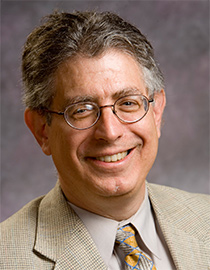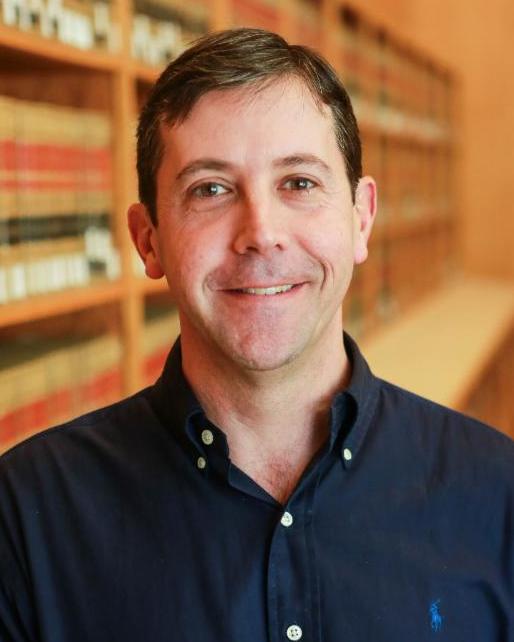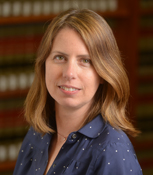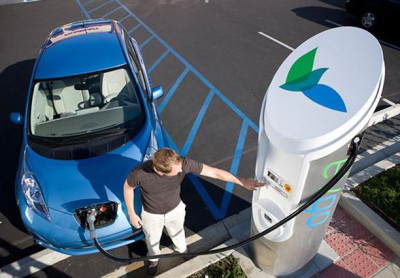| |
Question + Answer
After Paris, what comes next for U.S. climate policy?
On June 1, President Trump announced that the United States would leave the Paris Agreement, a decision that immediately generated vehement commentary from people around the world. The decision upends notions of U.S. leadership in global climate change negotiations. Further, it raises questions about the future of domestic climate action. We asked three experts, Dan Farber, Ethan Elkind, and Cara Horowitz to weigh in on this decision and its impacts on U.S. policies.
Cumulatively, the US has emitted more CO2 than any other country in the world. What does the decision to walk away from our commitment to reduce emissions mean for the future of the Paris Agreement?
 DF:
In the short run, it doesn't seem likely to have much impact.
The major players -- like the EU, China, India, and Japan -- have all reaffirmed their commitment to the agreement. But, in the long run, the situation is more perilous. A new U.S. President, however, might well be able to rejoin the agreement or otherwise
communicate U.S. resolve to address climate change, which could staunch whatever bleeding is taking place.
DF:
In the short run, it doesn't seem likely to have much impact.
The major players -- like the EU, China, India, and Japan -- have all reaffirmed their commitment to the agreement. But, in the long run, the situation is more perilous. A new U.S. President, however, might well be able to rejoin the agreement or otherwise
communicate U.S. resolve to address climate change, which could staunch whatever bleeding is taking place.
 EE: The import of the Paris Agreement isn't that it triggers massive emissions reductions. Rather,
it's a way to coordinate voluntary pledges from each country. In the case of the U.S., the Trump Administration had already pledged to roll back the regulations that would help us meet our commitment. In particular, Trump already decided to kill the Clean Power Plan to reduce emissions from electricit
y and delay fuel economy standards (although both efforts will likely be tied up in courts for years to come). From a political perspective, our withdrawal could potentially undermine the commitment of other countries to the agreement.
EE: The import of the Paris Agreement isn't that it triggers massive emissions reductions. Rather,
it's a way to coordinate voluntary pledges from each country. In the case of the U.S., the Trump Administration had already pledged to roll back the regulations that would help us meet our commitment. In particular, Trump already decided to kill the Clean Power Plan to reduce emissions from electricit
y and delay fuel economy standards (although both efforts will likely be tied up in courts for years to come). From a political perspective, our withdrawal could potentially undermine the commitment of other countries to the agreement.
 CH: I agree with Dan that it's hard to know, in the short term, what this will mean for the Paris Agreement -- but it can't be good. The Paris Agreement would not have come together without U.S. leadership and commitment, because the rest of the world quite rightly views this as a problem that the U.S. needs to help solve. Without continued U.S. commitment, it is hard to imagine most other countries increasing the ambition of their Paris climate pledges. And the Paris Agreement really only works if the ambition of its member
countries increases significantly, pretty quickly.
CH: I agree with Dan that it's hard to know, in the short term, what this will mean for the Paris Agreement -- but it can't be good. The Paris Agreement would not have come together without U.S. leadership and commitment, because the rest of the world quite rightly views this as a problem that the U.S. needs to help solve. Without continued U.S. commitment, it is hard to imagine most other countries increasing the ambition of their Paris climate pledges. And the Paris Agreement really only works if the ambition of its member
countries increases significantly, pretty quickly.
With abandoning Paris and the arguably more practically significant decision to roll back the Obama administration's Clean Power Plan, will we still see renewable energy expand domestically?
 DF:
I'm not an energy economist, but I think the answer is yes. The economics for renewables are getting better, and there has been a big build-out even in Republican strongholds. But we would have seen more rapid growth with the Clean Power Plan. DF:
I'm not an energy economist, but I think the answer is yes. The economics for renewables are getting better, and there has been a big build-out even in Republican strongholds. But we would have seen more rapid growth with the Clean Power Plan.
E
 E
: Yes, electricity policies are largely driven by states, and many of them
have mandates on renewable energy. Furthermore, investment from countries like China are bringing the costs down, making coal less competitive. However, the federal government does help by providing tax credits for renewables and research support, which Trump's administration is trying to undermine. And U.S. tariffs on imported solar panels, for example, could really hurt the domestic market here. But barring dramatic policy shifts, costs will continue to go down and states (and some big businesses, like Google and Apple) will continue to lead.
E
: Yes, electricity policies are largely driven by states, and many of them
have mandates on renewable energy. Furthermore, investment from countries like China are bringing the costs down, making coal less competitive. However, the federal government does help by providing tax credits for renewables and research support, which Trump's administration is trying to undermine. And U.S. tariffs on imported solar panels, for example, could really hurt the domestic market here. But barring dramatic policy shifts, costs will continue to go down and states (and some big businesses, like Google and Apple) will continue to lead.
 CH: Let's all hope that the market dynamics driving a low-carbon electricity grid are robust even against market meddling from the Trump folks. I love Governor Jerry Brown's line on this topic. He said, "It's true the coal industry is declining, but it's declining because gas is cheaper and solar is cheaper in many applications. So it's competition. Look, the buggy whip industry didn't make it. That doesn't mean we should subsidize it." CH: Let's all hope that the market dynamics driving a low-carbon electricity grid are robust even against market meddling from the Trump folks. I love Governor Jerry Brown's line on this topic. He said, "It's true the coal industry is declining, but it's declining because gas is cheaper and solar is cheaper in many applications. So it's competition. Look, the buggy whip industry didn't make it. That doesn't mean we should subsidize it."
Last Tuesday, Governor Jerry Brown was named special envoy at the next meeting of the UN Framework Convention on Climate Change. Should we expect to see subnationals playing a larger role in international climate policy going forward?
 DF:
This is part of a larger trend, which some people are calling "transnational law" to distinguish it from traditional international law, which involved only national governments. You can see this as part of a broader trend of bottom-up policy-making. It's not just states: we're also seeing some important international networks of cities. DF:
This is part of a larger trend, which some people are calling "transnational law" to distinguish it from traditional international law, which involved only national governments. You can see this as part of a broader trend of bottom-up policy-making. It's not just states: we're also seeing some important international networks of cities.
 EE
: Yes, states and cities are definitely filling the void. It's a coalition of the willing, rather than forcing top-down action from the federal government on recalcitrant states. These states and cities have a lot of purchasing power and sovereignty to push clean technologies and reduced emissions, and they can help incubate the programs we need to see scale up. They are also huge markets in and of themselves. Once they demonstrate success, as California has been doing, it will be easier to convince other jurisdictions to follow suit. EE
: Yes, states and cities are definitely filling the void. It's a coalition of the willing, rather than forcing top-down action from the federal government on recalcitrant states. These states and cities have a lot of purchasing power and sovereignty to push clean technologies and reduced emissions, and they can help incubate the programs we need to see scale up. They are also huge markets in and of themselves. Once they demonstrate success, as California has been doing, it will be easier to convince other jurisdictions to follow suit.

CH: This one's easy: Yes.
Dan Farber is the Sho Sato Professor of Law at Berkeley Law and CLEE Faculty Co-Director.
Ethan Elkind is the Director of the Climate Program at CLEE and leads the Climate Change and Business Research Initiative on behalf of the UC Berkeley and UCLA Schools of Law.
Cara Horowitz is the Andrew Sabin Family Foundation Co-Executive Director of
the Emmett Institute on Climate Change and the Environment at UCLA School of Law and the Co-Director of UCLA's Environmental Law Clinic.
|
|
Upcoming Event
When: Thursday, June 29, 2017, 12:00-1:30pm
Where: Room 1447, UCLA School of Law, Los Angeles, CA 90095

Join us at UCLA for a free lunchtime forum on policy options to boost California's EV charging infrastructure on Thursday, June 29th. Berkeley Law and UCLA Law will release a major joint report at the event as part of the Climate Change and Business Research Initiative, entitled "Plugging Away: How To Boost Electric Vehicle Charging Infrastructure."
Keynote Address by
- California Energy Commissioner Janea Scott
Followed by a panel featuring:
- Tyson Eckerle, Office of Governor Jerry Brown, Business and Economic Development (GO-Biz)
- Terry O'Day, EVgo
- Laura Renger, Southern California Edison
|
 |
|
With your help, we can build a more sustainable California
CLEE is a self-supported research and educational support center within Berkeley Law. Our work is made possible by project funding and donations from our generous community of supporters. If you like what we do, please consider making a donation through our giving portal.
We wouldn't be here today without the generosity of alumni, practitioners, and supporting organizations. Our deepest thanks to all of you who have already given, and those who are considering giving today!
|

|
The Center for Law, Energy & the Environment (CLEE) channels the creativity and expertise of the Berkeley community into pragmatic policy solutions to critical environmental and energy issues.
|
|
|
|
|
|
|
|
|
Copyright © 2017. All Rights Reserved.
|
|
|
|